The need to diversify and grow the STEM workforce to remain competitive in a global economy is well established. Research shows that improving diversity in an organization has positive effects on creativity, innovation, productivity, and financial performance. The benefits of diversity extend to the educational environment, with diversity among students and faculty being essential to the intellectual and social development of all students. In the U.S., the National Academies advocate that diversity in STEM must be a national priority, and several engineering professional societies have explicitly recognized the importance of diversity in their mission statements, goals, core values, and ethics statements. Similar calls to broaden minority participation in STEM are heard around the world.
The culture of STEM education culture has proven to be a barrier to diversity in terms of its impact on student interest, self-concept, connectedness, and persistence in STEM disciplines. One of the key reasons cited for students leaving STEM is the perception of a chilly climate, especially by those who are members of underrepresented groups. This talk focuses on the role of pedagogy and curriculum in building a more inclusive environment for engineering education and will present several practical recommendations and examples for engineering educators to make their own courses more inclusive.
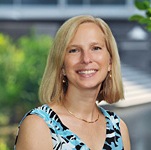 Dr. Stephanie Farrell is Professor and Founding Chair of Experiential Engineering Education at Rowan University (USA) and the 2018-19 President of the American Society for Engineering Education. Dr. Farrell has been recognized nationally and internationally for contributions to engineering education through her work in experiential learning and promoting diversity and inclusion. Stephanie was the 2014-2015 Fulbright Scholar in Engineering Education at Dublin Institute of Technology (Ireland). She was awarded Honoris Causa in Engineering Education from the Internationale Gesellschaft für Inginieurpädagogik (IGIP). She has been honored by the American Society of Engineering Education (ASEE) with several teaching awards such as the National Outstanding Teaching Medal and the Quinn Award for experiential learning. Her research interests include inductive teaching methods and the development of spatial visualization skills.
Dr. Stephanie Farrell is Professor and Founding Chair of Experiential Engineering Education at Rowan University (USA) and the 2018-19 President of the American Society for Engineering Education. Dr. Farrell has been recognized nationally and internationally for contributions to engineering education through her work in experiential learning and promoting diversity and inclusion. Stephanie was the 2014-2015 Fulbright Scholar in Engineering Education at Dublin Institute of Technology (Ireland). She was awarded Honoris Causa in Engineering Education from the Internationale Gesellschaft für Inginieurpädagogik (IGIP). She has been honored by the American Society of Engineering Education (ASEE) with several teaching awards such as the National Outstanding Teaching Medal and the Quinn Award for experiential learning. Her research interests include inductive teaching methods and the development of spatial visualization skills.
Higher Education Institutions around the world are challenged with incremental or disruptive transformations to the way that individuals, groups and organizations “learn” and the way to “assess” learning in 21st Century. The role of Digital Technologies in this challenging landscape of Higher Education is to allow for innovative experiences, processes, products, services, that would not be possible without the use of digital technologies. As Higher Education is moving online, providing technology-enhanced personalised learning experiences to the wide diversity of online students remains a major challenge.
Educational Data Analytics have emerged as the means for supporting data-driven evidence based educational decisions at various levels (from the classroom teaching and the curriculum development to university innovation planning and policy making) and from different stakeholders (classroom teachers, instructional designers, curriculum leaders, university leaders, policy makers) aiming towards better teaching and learning outcomes.
My research program aims to study Educational Data Analytics for Personalized Learning in Online Higher Education and my presentation will cover the following topics:
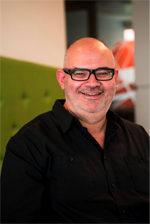 Demetrios Sampson is a Professor at the Department of Digital Systems, University of Piraeus, Greece (since 2003) and at the School of Education, Curtin University, Australia (since 2015). He is a influential academic leader worldwide in the field of Learning Technologies and Digital Learning. His research has an significant impact as he is listed at the top 15 researchers globally in the field of Learning Technologies based on Google Scholar citations. He is the co-author of 340 articles in scientific books, journals and conferences, and the editors of 12 books, 32 special issues in academic journals and 35 international conference proceedings. He has received 10 times Best Paper Award in International Conferences on Learning Technologies. He has been a Keynote/Invited Speaker/Lecturer in 80 International/National Conferences and/or Postgraduate Programs around the world since 2001. He has been project director, principle investigator and/or research consultant in 70 Research and Innovation projects with external funding at the range of 16 Million€ since 1991. He has supervised 155 honours and postgraduate students to successful completion since 2003. He has developed and delivers the first Massive Online Open Course (MOOC) on the use of Educational Data Analytics by School Teachers (Analytics for the Classroom Teacher), offered by the edX platform (a Harvard and MIT led global initiative) which has attracted more than 8500 participants from 147 countries around the world since October 2016. He is the recipient of the IEEE Computer Society Distinguished Service Award (July 2012) and named a Golden Core Member of IEEE Computer Society in recognition of his contribution to the field of Learning Technologies. This most coveted recognition is given to 450 prominent experts in the world since 1996 by the IEEE Computer Society, the world’s leading membership organization for professionals in all aspects of modern computing with 60,000 members from 168 countries. Currently he leads a European University-Industry Consortium (Learn2Analyse) aiming to promote the Educational Data Literacy for Online Education and Training Professionals and Higher Education students, co-funded by the European Commission (Erasmus+ Knowledge Alliance Program).
Demetrios Sampson is a Professor at the Department of Digital Systems, University of Piraeus, Greece (since 2003) and at the School of Education, Curtin University, Australia (since 2015). He is a influential academic leader worldwide in the field of Learning Technologies and Digital Learning. His research has an significant impact as he is listed at the top 15 researchers globally in the field of Learning Technologies based on Google Scholar citations. He is the co-author of 340 articles in scientific books, journals and conferences, and the editors of 12 books, 32 special issues in academic journals and 35 international conference proceedings. He has received 10 times Best Paper Award in International Conferences on Learning Technologies. He has been a Keynote/Invited Speaker/Lecturer in 80 International/National Conferences and/or Postgraduate Programs around the world since 2001. He has been project director, principle investigator and/or research consultant in 70 Research and Innovation projects with external funding at the range of 16 Million€ since 1991. He has supervised 155 honours and postgraduate students to successful completion since 2003. He has developed and delivers the first Massive Online Open Course (MOOC) on the use of Educational Data Analytics by School Teachers (Analytics for the Classroom Teacher), offered by the edX platform (a Harvard and MIT led global initiative) which has attracted more than 8500 participants from 147 countries around the world since October 2016. He is the recipient of the IEEE Computer Society Distinguished Service Award (July 2012) and named a Golden Core Member of IEEE Computer Society in recognition of his contribution to the field of Learning Technologies. This most coveted recognition is given to 450 prominent experts in the world since 1996 by the IEEE Computer Society, the world’s leading membership organization for professionals in all aspects of modern computing with 60,000 members from 168 countries. Currently he leads a European University-Industry Consortium (Learn2Analyse) aiming to promote the Educational Data Literacy for Online Education and Training Professionals and Higher Education students, co-funded by the European Commission (Erasmus+ Knowledge Alliance Program).
In 2015 the UN adopted Agenda 2030 with the 17 Sustainable Development Goals (SDGs), In order for us to secure a sustainable future, engineers will play an essential role in attaining the Sustainable Development Goals (SDGs) of Agenda 2030 by creating the environmentally-friendly technologies of the future.
The Agenda 2030 directly relates to poverty reduction, infrastructure development, education, achieve gender equality and empower all women and girls, ensure availability and sustainable management of water and sanitation for all, ensure access to affordable, reliable, sustainable and modern energy for all and conserve and sustainably use the oceans, seas and marine resources for sustainable development. Almost all 17 of the Sustainable Development Goals relate to science and engineering. With the creation of the Sustainable Development Goals, engineers will continue to play a decisive role in their success.
The second edition of UNESCO’s Engineering Report (ER II) will contribute to the achievement of the 2030 Agenda. More particularly, by providing information as well as recommendation on tertiary and higher education, ER II will improve education and thus contribute to inclusive and equitable education for all, especially as a lack of engineers is one of the principal impediments to economic growth in many countries around the world. This presentation will focus on the work UNESCO is doing in engineering to contribute to the achievement of Agenda 2030.
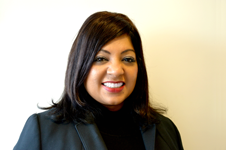 Rovani Sigamoney is a chemical/environmental engineer from South Africa who started in the platinum refinery/mining sector and then moved on to researching bioenergy systems and biofuels for Africa.
Rovani Sigamoney is a chemical/environmental engineer from South Africa who started in the platinum refinery/mining sector and then moved on to researching bioenergy systems and biofuels for Africa.
She joined the United Nations Educational, Scientific and Cultural Organisation (UNESCO) HQ in Paris, France in 2007 in the Natural Sciences Sector and later ran the Chemistry programme and International Year of Chemistry 2011. She thereafter took over the UNESCO Engineering programme. The Engineering Programme is working with Member States (UNESCO has 195 Member States), international partners and program experts to strengthen engineering education through curricula development, hands-on training and capacity building. In line with UNESCO’s global priorities on Africa and Gender Equality, it focuses on women and Africa but also has activities around the world. Rovani is passionate about women in engineering and encouraging more youth to pursue careers in engineering.
Rovani previously worked in Brazil, USA and Ireland. Before joining UNESCO, she worked at the United Nations Environment Programme (UNEP), Paris on a biofuels strategy and then at the Wuppertal Institute of Climate Change in Germany on a policy document for the European Parliament on the security of energy supply.
You can find the keynote presentation here
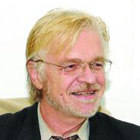 Hans-Juergen Hoyer is Secretary General for the International Federation of Engineering Education Societies (IFEES), Executive Secretary of the Global Engineering Deans Council (GEDC), and a Resident Scholar in Global Engineering at Marquette University’s OPUS College of Engineering.
Hans-Juergen Hoyer is Secretary General for the International Federation of Engineering Education Societies (IFEES), Executive Secretary of the Global Engineering Deans Council (GEDC), and a Resident Scholar in Global Engineering at Marquette University’s OPUS College of Engineering.
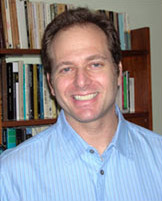 David Guralnick is President of the International E-Learning Association (IELA) and President of Kaleidolearning New York, Adjunct Professor at Columbia University.
David Guralnick is President of the International E-Learning Association (IELA) and President of Kaleidolearning New York, Adjunct Professor at Columbia University.
You can find the keynote presentation here
| 28 Mar 2018 | Submission of - structured abstracts (full, short paper) for the main conference - Special Session Proposals |
| 20 Apr 2018 | - Notification of acceptance for abstracts for the main conference - Special sessions notification and announcment |
| 04 Jun 2018 | Submission of complete papers for all submission types (plus trailer for GinEE Award) |
| 22 Jun 2018 | Notification of Acceptance |
| 30 Jun 2018 | Submission of Late Papers |
| 07 Jul 2018 | Notification of Acceptance of Late Papers |
| 27 Jul 2018 | Author Registration Deadline |
| 27 Jul 2018 | Camera-ready due |
| 25 Sep 2018 | Conference Opening |